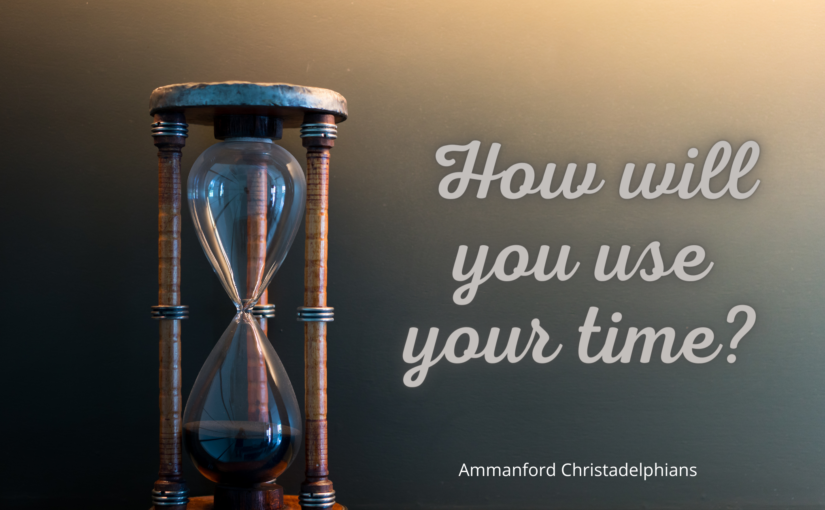Each time an artefact related to the Biblical narrative is unearthed in Israel or the surrounding lands of the Bible it becomes a witness to the perfection of God’s Word.
And it happens all the time.
Here are six recent discoveries that affirm some rather obscure details in the Bible. Each one provides material evidence of the historical reliability of the Bible, and hopefully, increases our faith.
Biblical city of Ziklag

Aerial view of the archaeological site at Khirbet a-Ra’i where researchers believe they have located the biblical city of Ziklag.
Photo credit: Emil Ajem, Israel Antiquities Authority
While hiding from Saul in Philistia, King Achish of Gat awarded Ziklag to David as a vassal state. The book of Samuel reveals the Amalekites later destroyed Ziklag. Now when David and his men came to Ziglag on the third day the Amalekites had made a raid against the Negeb and against Ziglag. They had overcome Ziklag and burned it with fire….. (1 Samuel 30:1) Read the whole chapter to find out what David did!
(Though archaeologists have suggested several sites as possible locations, none have included evidence of both a Philistine settlement and a settlement from the time of David.)
That is until a few weeks ago.
After a 12-year study of the entire region, archaeologists say they may have found the biblical city of Ziklag near the southern town of Kiryat Gat2 in Israel. The find, dating to the early tenth century BC, is consistent with scriptural references to the geography of the area: a rural settlement dating to the time of King David among the remains of a Philistine settlement that had been destroyed by fire.
Clay Pomegranate found in Tel Shiloh
A distinctly Jewish symbol, pomegranates were one of the seven species of Israel (Deuteronomy 7:12-11:25) and were common tabernacle and temple motifs (1 Kings 7:18; 2 Kings25:17). But long before the first temple was built, they were sewn into the hem of the high priest’s robe by God’s command:
“On its hem you shall make pomegranates of blue and purple and scarlet yarns, around its hem, with bells of gold between them, a golden bell and a pomegranate, a golden bell and a pomegranate, around the hem of the robe. And it shall be on Aaron when he ministers, and its sound shall be heard when he goes into the Holy Place before the LORD, and when he comes out, so that he does not die.” (Exodus 28:33-35)
That’s why the 2018 discovery of a small, fully intact ceramic pomegranate at Tel Shiloh, the site where many believe the tabernacle rested (Joshua 18:1), bolstered scholars’ excitement.
This clay pomegranate fits the description in both shape and size of the pomegranates that hung from the priests’ robes. For some scholars, the discovery of the pomegranate affirms the sacredness of Shiloh (Jeremiah 7:12) for the Jews in Israel’s early days.

Photo credit: Ancient Shiloh
Beka weight from the Temple Mount

Beka weight found among dirt near the foundation stones of Jerusalem’s Western Wall. Photo credit: Eliyahu Yanai, City of David
A small weight dating to the First Temple period was unearthed at the southwestern corner of the Temple Mount in soil removed from under the Western Wall, just north of the City of David in the area of Robinson’s Arch.
The Hebrew word beka (בֶּקַע) inscribed on the weight is equivalent to a half shekel, or about 0.20 ounces. (Exodus 38:26) explains these small stones served as the measurement for the half-shekel temple tax.
“The silver from those numbered among the congregation . . . a beka (בֶּקַע) per person, that is, half a shekel, according to the sanctuary shekel.”
When Jews would bring their half-shekel tax to the temple for the census, they had no coins, only pieces of silver—and it was necessary to know their true weight. Silver pieces were weighed based on the beka weight.
The beka discovery lines up with the biblical narrative and helps confirm the Old Testament system of weights and the existence of Solomon’s Temple.
Five rare coins from Jerusalem

Photo credit: Zachi Dvira, Temple Mount Sifting Project
Though small, these five coins are a big find.
The Temple Mount Sifting Project discovered five rare coins dating from the fourth century BC from around the time described in Ezra and Nehemiah. These two books document the Jewish people returning from Babylonian exile and beginning construction of the Second Temple by decree of Cyrus the Great.
Bearing the inscription in ancient Hebrew יְהוּדָה (Judah), they are believed to be some of the earliest evidence of Jewish coin minting in Israel:
“These were the first coins ever minted by Jews . . . They express the people’s return to their land after the Babylonian exile, and their ability to hold and maintain diplomatic ties with the ruling empire—then Persia.” — Zachi Dvira, Temple Mount Sifting Project
Like the beka weight, these coins affirm details often overlooked in Scripture: a thriving commercial and administrative temple life.
“Then they gave money to the masons and carpenters, and gave food and drink and olive oil to the people of Sidon and Tyre, so that they would bring cedar logs by sea from Lebanon to Joppa, as authorized by Cyrus king of Persia.”8 (Ezra 3:7)
Watchtower dating to the time of Hezekiah

Photo credit: Israel Antiquities Authority
Just weeks ago, the remains of a 15 X 10.5-foot stone watchtower were discovered on a hilltop inside a paratrooper base in southern Israel. It’s believed to be a watchtower abandoned when Assyrian King Sennacherib invaded the area in 701 BC at the end of King Hezekiah’s reign.
The view from the tower includes the Hebron hills, the Judean plain, and Ashkelon. In Hezekiah’s day, soldiers could easily monitor the area and report activity back to their king.
At that time, the entrance to the tower was sealed up and the soldiers fled. Sennacherib’s military campaign in Judea was particularly devastating with Assyrian writings claiming he destroyed 46 cities and over 2,000 farms and villages. Sennacherib went on to lay siege to Jerusalem but was ultimately unsuccessful.
You can read the whole account of Sennacherib’s unsuccessful siege of Jerusalem in (2 Kings 18:13-27)
“He struck down the Philistines as far as Gaza and its territory, from watchtower to fortified city. … In the fourteenth year of King Hezekiah, Sennacherib king of Assyria came up against all the fortified cities of Judah and took them.” (2 Kings 18:8, 13)
Fortification wall at Lachish

Photo credit: Yossi Garfinkel, Hebrew University
Biblical scholars have long debated whether a strong centralized kingdom existed during Solomon’s reign.
But recently, archaeologists unearthed a fortification wall at Lachish and dated it to the tenth century BC. They argue the fortifications are evidence of the Bible’s account of Solomon’s son, Rehoboam.
The kingdom of Israel had split after Solomon’s death, and to prepare for an expected attack from Egypt, Judah’s new king fortified a series of cities:
“Rehoboam lived in Jerusalem, and he built cities for defence in Judah . . . Adoraim, Lachish, Azekah . . . He made the fortresses strong, and put commanders in them, and stores of food, oil, and wine. And he put shields and spears in all the cities and made them very strong. So he held Judah and Benjamin.” (2 Chronicles11:5, 9, 11-12) Though some scholars disagree, others stand firm that the finding shores up this biblical account in the book of Chronicles.
These recent discoveries are the latest of many discoveries found by archaeologists. They all prove that the Bible is the inspired Word of God. We hope that you will reach for your Bible to read all the given passages and that you will be encouraged to read about the wonderful message it has about God’s promise of salvation to all who put their hope and trust in Him.
This article was originaly written by Karen Engle Wed, July 24, 2019. Karen Engle received her MA in Biblical Studies and Theology from Western Seminary. She is an editor for Faithlife and regularly takes groups to Israel.









